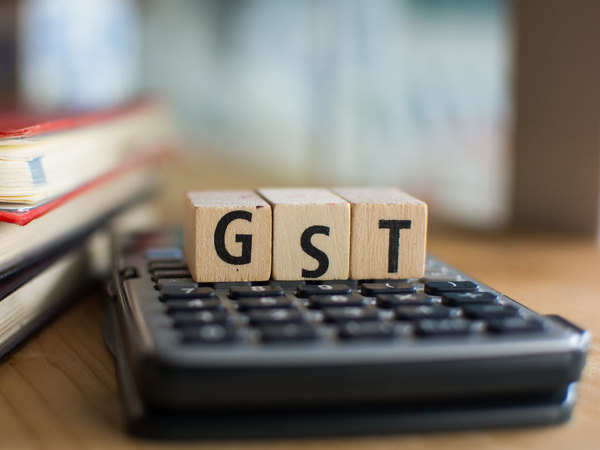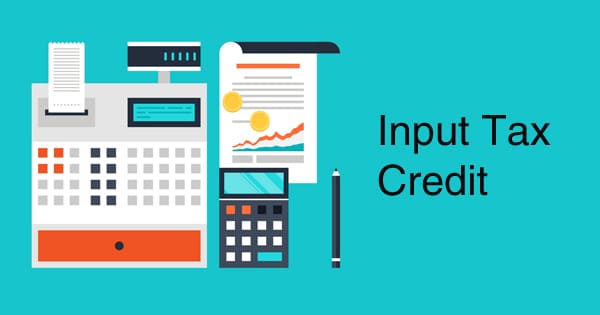1. Introduction
In this article we shall discuss about treatment of advances in hands of supplier under GST Law in detail. Before proceeding let us have some discussion on the GST basics in this regard.
As per article 366(12A) of the Constitution of India as inserted by the Constitution (One Hundred and First Amendment) Act, 2016, “goods and services tax” means any tax on supply of goods , or services or both except taxes on the supply of the alcoholic liquor for human consumption.
Further as per the statement of objects and reasons as provided in the Constitution (One Hundred and Twenty second Amendment) Bill, 2014, the proposed Central and State goods and services tax would be levied on all transactions involving supply of goods and services except those that are exempt or kept out of the purview of the goods and services tax.
Based upon above we can say GST is a tax on supply of goods or services or both and should be payable upon crystallization of taxable event viz supply. However the Government while drafting and notifying the GST law has made advance payments taxable even though is such cases supply will be made in future.
2. Charging Section of GST Act(s)
As per the Charging Section viz Section 9(1) of the CGST Act, 2017/ State GST Act(s), CGST / SGST is levied on all intra-State supplies of goods or services, or both. Similarly as per Section 5(1) of the IGST Act, IGST is levied on all inter-State supplies of goods or services, or both.
Thus ‘supply’ is the taxable event. However as per Section 7(1)(a) of the CGST Act the expression supply includes all forms of supply of goods or services or both, made or agreed to be made for a consideration by a person in the course or furtherance of business. Further as per Section 7(1)(c), supply also includes the activities specified in Schedule I , made or agreed to be made without a consideration.
The important words to note here are ‘agreed to be made’. The words “agreed to be made” have intentionally been used by the legislature so that advances can be made taxable under GST law.
3. Advances are taxable under GST Law as per time of supply provisions
As per Section 12(1) and 13(1) of the CGST Act, 2017 the liability to pay tax for supply of goods and services, respectively arises as per provisions laid down in said Sections.
3.1 Time of supply of goods
As per Section 12(2) of the CGST Act the time of supply of goods is earlier of:
| Date of issue of invoice by the supplier or the last date on which he is required to issue the invoice for such supply OR |
| Date on which the supplier receives the payment with respect to the supply. |
Accordingly the time of supply will get attracted upon receipt of advance by supplier.
Relief provided and now advances are not taxable for supply of goods
Due to levy of GST on advances towards goods, lot of hue and cry erupted as there was no such provision in pre-GST era. Considering the request from Industry and various quarters the Government provided relaxation and dispensed with taxability of advances in case of supply of goods by issuing notification No. 40/2017-CT dated 13.10.2017 and 66/2017-CT dated 15.11.2017, under Section 148 of the CGST Act, 2017 wherein special procedure can be laid down.
The position of taxability of advances towards supply of goods is tabulated below for ready reference of the readers.
Taxability of Advances under GST:
| Period | Aggregate turnover upto Rs 1.50 crore (NN 40/2017-CT dtd 13-10-17) | Aggregate turnover more than Rs 1.50 crore (NN 66/2017-CT dtd 15-11-17) |
| 01.07.2017 to 12.10.2017 | Taxable | Taxable |
| 13.10.2017 to 15.11.2017 | Non- Taxable | Taxable |
| 15.11.2017 and onwards | Non- Taxable | Non- Taxable |
Composition suppliers also not required to pay tax on advance of supply of goods
A composition supplier has to pay, an amount calculated at prescribed rate applied on his ‘turnover in the State / Union Territory’ for a quarter.
The composition suppliers are therefore also not required to pay any tax on advance received as the same does not form part of taxable supplies, and in turn , also does not form part of the turnover in a State / Union territory at the end of the quarter.
3.2 Time of supply of services
As per Section 13(2) of the CGST Act,2017 the time of supply of services is as under:
If invoice is issued within prescribed time
Date of issue of invoice by the supplier or the date of receipt of payment whichever is earlier
If invoice is NOT issued within prescribed time
Date of provision of service or the date of receipt of payment whichever is earlier
From above provisions, it is evident that the time of supply of services will get attracted upon receipt of advance by supplier. Further in this regard it may be noted that no relaxation in regard to nonpayment of GST on advances, as provided to supplier of goods has been given to supplier of services.
The reason for non extension of relaxation could be the fact that supplier of services were earlier also required to pay service tax on advances in the pre GST regime as per Point of Taxation Rules, 2011 which were made effective from 01.04.2011.
4. Issue of receipt voucher by supplier upon receipt of advances under GST
As per Section 31(3)(d) of the CGST Act, 2017 a registered person shall, on receipt of advance payment with respect to any supply of goods or services or both, issue a receipt voucher or any other document, containing such particulars as may be prescribed, evidencing receipt of such payment.
Thus a supplier should issue receipt voucher upon receipt of advances towards supply of goods or services or both.
4.1 Contents of receipt Voucher
As per Rule 50 of the CGST Rules, 2017,a receipt voucher referred to in section 31(3)(d) shall contain the following particulars, namely,-
(a) name, address and Goods and Services Tax Identification Number of the supplier;
(b) a consecutive serial number not exceeding sixteen characters, in one or multiple series, containing alphabets or numerals or special characters-hyphen or dash and slash symbolised as “-“ and “/” respectively, and any combination thereof, unique for a financial year;
(c) date of its issue;
(d) name, address and Goods and Services Tax Identification Number or Unique Identity Number, if registered, of the recipient;
(e) description of goods or services;
(f) amount of advance taken;
(g) rate of tax (central tax, State tax, integrated tax, Union territory tax or cess);
(h) amount of tax charged in respect of taxable goods or services (central tax, State tax, integrated tax, Union territory tax or cess);
(i) place of supply along with the name of State and its code, in case of a supply in the course of inter-State trade or commerce;
(j) whether the tax is payable on reverse charge basis; and
(k) signature or digital signature of the supplier or his authorised representative:
Provided that where at the time of receipt of advance,-
(i) the rate of tax is not determinable, the tax shall be paid at the rate of eighteen per cent.;
(ii) the nature of supply is not determinable, the same shall be treated as inter-State supply.
5. Disclosure of advances in GST Returns
GSTR-1
The consolidated statement of advances received / advances adjusted in the current tax period / amendments of information furnished in earlier tax period is to be provided by supplier in Table 11 of the GSTR-1 which for ready reference is given below:

It may be noted here that in above table only advances towards supply of services needs to be shown as advances towards supply of goods are not taxable and will be taxed subsequently upon issue of invoice / completion of supply.
Further the Sr. Nos of the Receipt voucher issued, total number, cancelled and net issued is required to be disclosed at Sl. No 6 of Table No. 13 of the GSTR-1.
GSTR-3B
The value of taxable supplies to be shown in table 3.1, 3.2 and 5 of GSTR-3B shall be including the value of advances received towards supply of services for which invoices have not been issued in the same month.
Further the value of advances adjusted against invoices would be reduced from value of taxable supplies, as once tax has been paid on advances, such amount cannot be brought to tax upon supply.
It has further been provided in the instructions to GSTR-3B that details of advances as well as adjustment of same against invoices, to be adjusted and not shown separately.
6. Refund / adjustment of tax paid on advance received for a service contract which got cancelled and for which invoice was issued before supply of service
This issue caters to an interesting position i.e. invoice has been issued without any supply being made. We all know that as per Section 31 of the CGST Act read with Rule 47 of the CGST Rules, tax Invoice in respect of supply of services is required to be issued within 30 / 45 days of date of supply of service.
Thus supply of service is an event prior to issuance of invoice. In order to cater to situations where advance has been received and supply not yet made, Sec 31(3)(d) of the CGST Act mandates issuance of “receipt voucher” (no invoice) which would also include tax charged (as advances received towards supply of services are taxable).
Taxpayers should desist from issuance of invoice without supply as it would result in accounting issues in booking of income for the supplier as well as ITC issues for recipient, as credit cannot be availed till he receives the goods or services or both (Section 16(1) of the CGST Act).
Anyways coming back to the issue, it has been clarified vide Circular No.137/07/2020-GST dated 13.04.2020 that in case GST is paid by the supplier on advances received for a future event which got cancelled subsequently and for which invoice is issued before supply of service, the supplier is required to issue a “credit note” in terms of section 34 of the CGST Act.
He shall declare the details of such credit notes in the return for the month during which such credit note has been issued. The tax liability shall be adjusted in the return subject to conditions of section 34 of the CGST Act. There is no need to file a separate refund claim.
Although the matter has been clarified by CBIC and is now binding on GST Deptt but in our view if we make a plain reading of Section 34 it appears that in regard to services, credit note can be issued only where the taxable value or tax payable in a tax invoice is found to exceed the taxable value or tax payable in respect of such supply, which is not the case here as no supply itself has been made.
However it appears some sort of COVID-19 relief has been provided to tax payers on this issue.
Further it has been clarified that in cases where there is no output liability against which a credit note can be adjusted, registered persons may proceed to file a claim under “Excess payment of tax, if any” through FORM GST RFD-01.
It is pertinent to mention here that credit note should be issued within the time prescribed under Sec 34(2) of the CGST Act viz not later than September, following the FY when supply was made or date of furnishing relevant annual return, whichever is earlier.
It is interesting how this law will apply in instant case, where no supply has been made. Taking the date of invoice may be the jugaad to apply the above limitation rule in instant case, considering that the credit note will anyway be linked to such an invoice.
7. Refund of tax paid on advance amount received for a service contract which got cancelled subsequently
In case GST is paid by the supplier on advances received for an event which got cancelled subsequently and for which no invoice has been issued in terms of section 31 (2) of the CGST Act, it has been been clarified vide Circular No.137/07/2020-GST dated 13.04.2020 that such a supplier is required to issue a “refund voucher” in terms of section 31 (3) (e) of the CGST Act read with rule 51 of the CGST Rules. It is pertinent to mention here that as in this case invoice was not issued, credit note cannot be issued as per the provisions of Section 34 of the CGST Act.
Further it has been clarified vide above said Circular that the taxpayer can apply for refund of GST paid on such advances by filing FORM GST RFD-01 under the category “Refund of excess payment of tax”. It may be noted here that in this case adjustment of tax paid is not permissible.
***
[rainbow]Don’t miss the next GST Update / Article / Judicial pronouncement[/rainbow]
Subscribe to our newsletter from FREE to stay updated on GST Law
Resolve your GST queries from national level experts on GST free of cost.
Frah Saeed is a law graduate specializing in the core field of indirect taxes and is the Co-founder of taxwallah.com. She has authored many publications on GST and is into full-time consultancy on GST to big corporates. She as a part of taxwallah.com heads a team comprising of Chartered Accountants and Advocates and plays a key role in our mission to disseminate GST knowledge to all.




